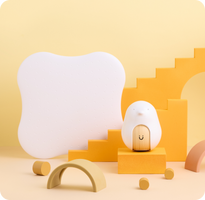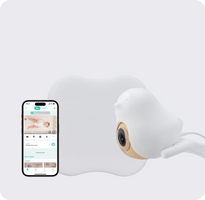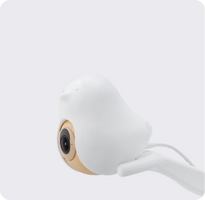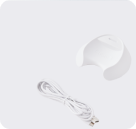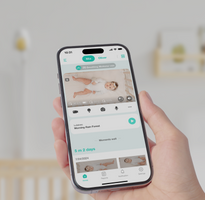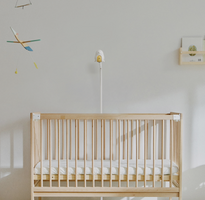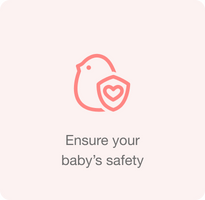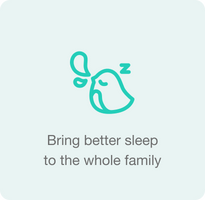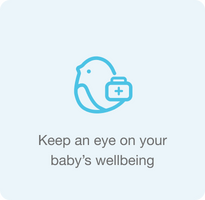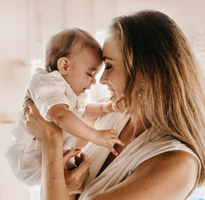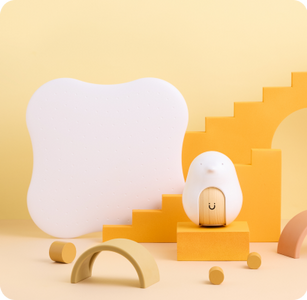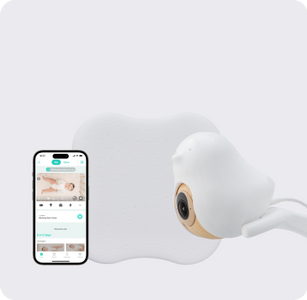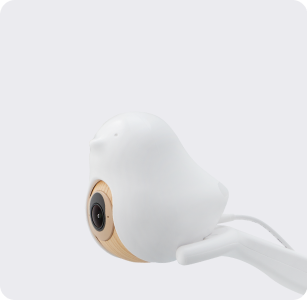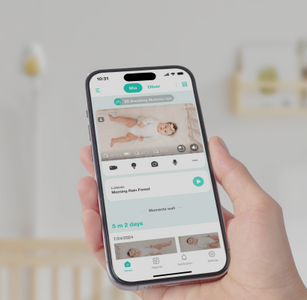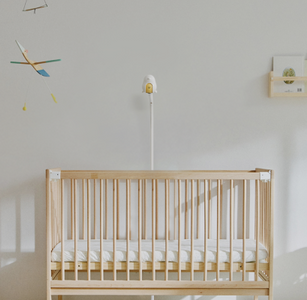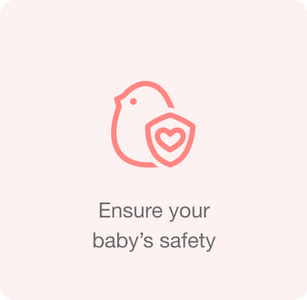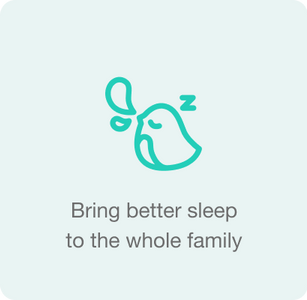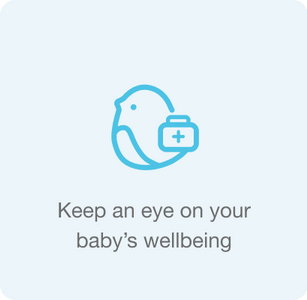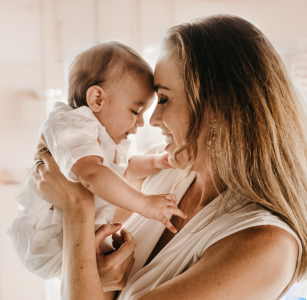4 Tips For Improving Baby Sleep Safety
Dr. Kenneth Yeh, pediatrician, explains 4 Tips for Improving Baby Sleep Safety. From pacifiers, substance avoidance, and swaddles, Dr. Yeh makes his top recommendations for baby sleep safety after treating thousands of babies.
4 Tips For Improving Baby Sleep Safety
To protect the baby's sleep safety, in addition to maintaining a suitable sleeping position and arranging a safe sleeping environment for the crib, following these four points described below can also effectively reduce the risk of sudden infant death (SIDS).
1. Breastfeeding
You would think breastfeeding wouldn't have anything to do with the quality of your baby's sleep, but breastfeeding, whether latching or bottle-fed, can help reduce the risk of sudden infant death.
There are two main reasons: the first is that breastfed babies are more likely to wake up mid-sleep than formula-fed babies. Although taking care of a baby with that kind of sleep habit is more tiring, when talking about the Sudden Death of the baby, the baby who is not sleeping as deeply has a better chance to recover in a critical moment. The second reason is that the antibodies and nutrients in breast milk can help your baby's immune system fight infections of the respiratory tract and gastrointestinal tract, thereby reducing the chance of sudden infant death.
Of course, we encourage breastfeeding when the mother is free to choose whether or not to breastfeed. If there are other factors preventing the mother from breastfeeding, then there are other options for reducing risk to your baby while they're sleeping.
2. Give Your Baby a Pacifier
Have you heard grandma's tales about how giving your baby a pacifier can also reduce the chance of Sudden Death? Yes, you're not mistaken! Although the reasons are not completely clear, the effect of prevention has been confirmed by many parties, even up to 90%. The speculative reasons include that pacifiers can help keep the airway open or help regulate the autonomic nervous system during sleep.
Even if the pacifier often falls off as soon as the baby falls asleep, some studies have pointed out that it is still protective. The use of pacifiers and their effect on SIDS is debated, so make sure you're comfortable with your use or abstinence of the pacifier and that you're informed.
Although there are reports that the use of a pacifier does not affect breastfeeding, some people believe that it will hinder the smooth progress of breastfeeding. Therefore, it is recommended to breastfeed babies and use pacifiers after the breastfeeding process is on track.
If you choose not to breastfeed your baby from the beginning, the sooner you use the pacifier, the better. In addition, pay attention to safety when using a pacifier. For example, do not wrap the rope around the baby's neck. If the baby is asleep, do not pinch it on clothes to avoid accidentally pinching the neck.
As for thumbsucking or putting their hands in their mouths, will it be as protective as a pacifier? No conclusion has yet been reached.
3. Abstain From Using Tobacco and Alcohol
Though this is commonplace now, it's worth reiterating.
Smoking can cause serious harm, and this means both smoking during pregnancy and second-hand smoke in the environment of the pregnant woman or baby. Smoking for pregnant women, in addition to causing premature birth or low birth weight, can also increase the risk of sudden infant death. When the babies sleep with the adults who smoke, there is a high risk for SIDS. Regardless of whether the adult is smoking in the bed or not, because smokers carry chemicals on their clothing, hair, and skin, which the baby can inhale while sleeping.
Alcohol should not be consumed during pregnancy because it has an adverse effect on the fetus. Whether you drink alcohol during pregnancy or within one year of your baby's birth, you can increase the risk of Sudden Infant Death.
4. Be Careful When Using Swaddles
Parents use a swaddle to soothe and promote sleep in their baby, but pay attention to two points. The first is not to pack the baby too tightly, and to make sure that the baby's feet are not too straight, so as not to affect the development of the hip joint. The second is that when you find that your baby may start to roll over, don't pack them in a swaddle anymore. When a baby is using a swaddle and sleeping on their back, it will increase the risk of Sudden Death (SIDS). The use of the wrap itself has not been proven to reduce the risk of sudden infant death, whether the hands are wrapped inside or outside. If you'd like to see other ways of keeping your baby warm without a swaddle, check out our tips here.
There are other factors that are not very clear. For example, babies who have been vaccinated according to the schedule have a lower chance of Sudden Death. As long as you can keep up with the progress of the vaccination, you don't have to force the vaccination when your baby has a cold or a fever, and you don't have to worry too much about accidentally forgetting to do it.
In the end, it is necessary to rely on doctors to constantly teach and guide new parents. And the media, especially theatrical programs, to not make incorrect demonstrations so that viewers mistakenly believe that the baby's sleep should be in any sort of unsafe position. Let's work together to promote the safety of babies' sleep and save babies' lives.

Dr. Kenneth Yeh
Dr. Kenneth Yeh, pediatrician, explains 4 Tips for Improving Baby Sleep Safety. From pacifiers, substance avoidance, and swaddles, Dr. Yeh makes his top recommendations for baby sleep safety after treating thousands of babies.


